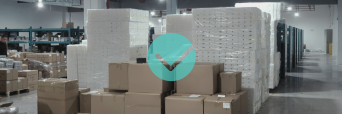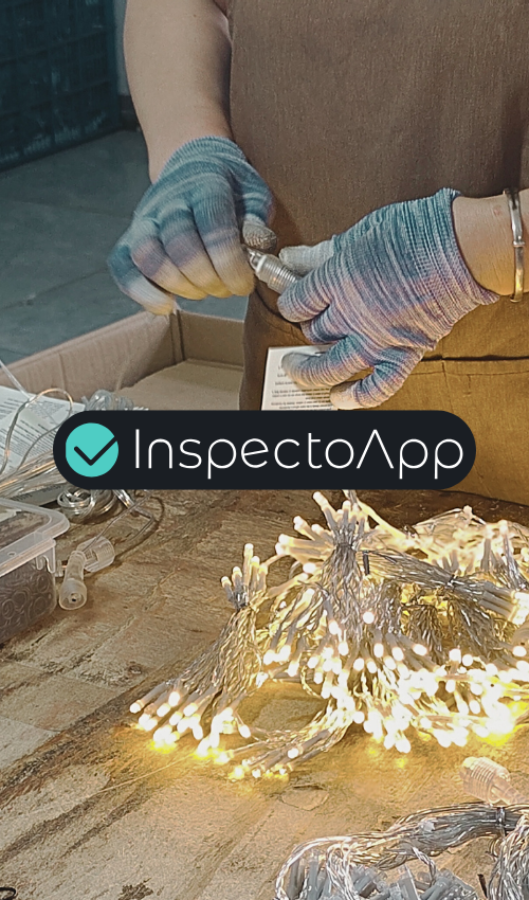Top 5 Industries That Rely Most on Quality Inspections in China

Importing from China has become a popular business strategy worldwide. Many entrepreneurs choose to work with Chinese factories to reduce production costs and access a wide variety of products. However, as in any industry, importing from China carries risks—especially regarding product quality. That's why an increasing number of companies are turning to quality inspection services in China.
In this article, we highlight five industries that most frequently rely on quality inspections in China—and explain why such services are essential.
1. Electronics and Electronic Devices
The electronics industry is one of China's largest sectors, with massive demand for products ranging from smartphones and televisions to computer accessories. High competition and a large number of manufacturers mean that not all factories maintain the same quality standards.
Why is quality inspection important in this sector?
-
High technology and precision: Even minor defects in electronics can cause product failures, which is critical for items that must be reliable and durable.
-
Compliance with regulations: Electronic products must meet safety standards (such as CE, UL), requiring careful attention.
-
Functionality testing: Devices often require detailed testing, such as processor performance, display quality, or Bluetooth connection stability.
What does inspection include?
-
Functionality tests,
-
Checking the quality of components,
-
Verifying compliance with safety certifications and standards,
-
Visual inspection and packaging verification.
2. Apparel and Textiles
The fashion industry heavily depends on Chinese production. Imports include not only finished garments but also fabrics, textiles, and accessories.
Why is quality inspection crucial?
-
Materials and finishing: Clothing must be made from appropriate materials with a high-quality finish. Defects like poorly stitched seams or damaged zippers affect customer perception.
-
Safety: Especially for children's clothing and lingerie textiles, ensuring products are free from harmful substances (like formaldehyde) is essential.
-
Size and standard compliance: Products must match the order in terms of design, dimensions, and quality.
What does inspection include?
-
Material and workmanship quality checks,
-
Size, color, and pattern verification,
-
Fabric durability testing,
-
Label and safety compliance inspections.
3. Toys and Children's Products
China is the world's largest toy producer, and many European and American companies source toys from Chinese factories. Here, quality control is especially critical due to the end users: children.
Why is quality inspection essential?
-
Safety: Toys must be free from harmful substances (e.g., phthalates, BPA), possess required certifications, and comply with strict EU and US standards.
-
Small parts: Toys must not pose a choking hazard for young children.
-
Quality of workmanship: Poor finishing, sharp edges, or loose parts can present serious dangers.
What does inspection include?
-
Verifying compliance with safety certifications,
-
Material testing for harmful substances,
-
Checking product finishing and functionality,
-
Testing durability and resistance to damage.
4. Furniture and Home Decor
China is one of the largest furniture manufacturers globally. Many businesses source furniture from Chinese factories to meet strong market demand, especially in the West.
Why is quality inspection necessary?
-
Durability: Furniture must withstand frequent use, and build quality directly impacts user safety and comfort.
-
Order compliance: Correct materials, colors, dimensions, and design details must match the specifications.
-
Regulatory compliance: Especially for children's furniture, meeting safety standards is mandatory.
What does inspection include?
-
Checking materials, construction durability, and strength,
-
Verifying dimensions, colors, and design details,
-
Testing furniture stability,
-
Evaluating safety features and ease of assembly.
5. Sports Equipment and Accessories
From bicycles to fitness apparel and exercise accessories, China manufactures a vast range of sports products. Here, quality control is vital for performance, durability, and user safety.
Why is quality inspection important?
-
Safety: Sports equipment (e.g., protective gear, balls) must be safe and defect-free to prevent injuries.
-
Material durability: Products must endure heavy use and various weather conditions.
-
Precision workmanship: Equipment like dumbbells, bikes, or fitness accessories must be well-constructed to function properly and safely.
What does inspection include?
-
Verifying material and workmanship quality,
-
Testing resistance to different conditions (pressure, humidity),
-
Ensuring compliance with safety standards,
-
Testing functionality and user comfort.
Summary
Quality control in China is crucial across all industries, especially in sectors that depend on precise production and high standards. Understanding the specific needs of your industry—and implementing proper inspection procedures—helps avoid product risks, ensures customer satisfaction, and secures long-term business success.
If you want to ensure your products from China meet the highest quality standards, contact us at [email protected]. At InspectoHub, we offer professional inspections to help you avoid product quality issues and build strong business relationships.
This may interest you...

How Does the Factory Audit Process in China Work?

Top 5 Industries That Rely Most on Quality Inspections in China

GPSR – General Product Safety Regulation: What You Need to Know

